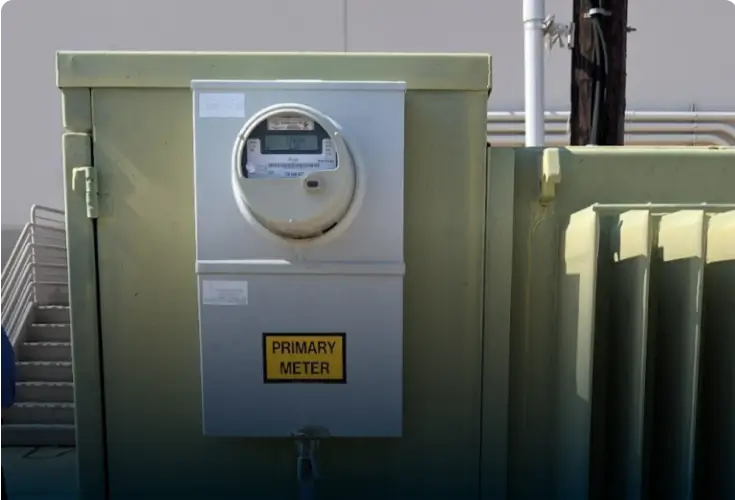In 2024, energy data coverage for triple net-leased properties in GRESB submissions hit 52%.
Progress? Sure. It’s up from the 30-40% range we saw over the past few years.
But still far behind other asset classes that have the luxury of landlords paying the bills and therefore controlling the data.
Included in this 52% are scenarios where utilities are willing to share whole building aggregate data and, increasingly, shadow metering.
That means asking tenants to share their utility bills has an even lower success rate.
Let’s unpack why.
Some tenants, particularly those with strict privacy policies, refuse to share their data as a matter of principle. But for most, the issue is simpler: they don’t see the benefit.
________________________________________
The Tenant’s Perspective
Imagine subscribing to a meal delivery service. Suddenly, in addition to your groceries, the company starts asking you to export and send your fitness tracker data for their own purposes.
At first, you’re confused. Why do they need to know how many steps you took or how much you slept? You’re paying them for meal kits, sharing that data feels irrelevant and invasive.
Now imagine the company flips the script. They mention they’ve partnered with your fitness app and, with your permission, can tailor your meals to align with your health goals. They’ll adjust portion sizes, suggest recovery-boosting recipes, or highlight foods that match your activity level.
Now, they get the data they want and the customers gets added value.
The key insight, and irony, here is that tenants care about their utility costs (and in some cases, their own carbon footprint).
________________________________________
Start with Automation
In a world in which AI is projected to be smarter than any single human next year, and smarter than all humans combined by 2029, it’s a little crazy that multi-billion dollar real estate funds are relying on people to email other people to send PDFs to be transcribed into spreadsheets.
Shadow metering is becoming increasingly affordable, removes humans from the equation and guarantees 100% data coverage across all utility types.
GRESB continues to tweak it’s scoring, but it is expected that data coverage, which is already the single largest contributor to scores, is only going to increase in significance.
In fact, the 19.5 points allocated to data coverage in the last scoring regime could easily be the difference between a 2 and 5 star rating.
Those who raise institutional capital for a living understand how immense this value is. Not only is more capital available, lowering the cost of capital by basis points equates to millions of dollars of value.
________________________________________
Then Flip the Script
If the value of shadow metering stopped at improving borrowing rates, saving PM time, and making life easier for tenants, it would still be a great deal.
But a happy byproduct of shadow metering is real-time data at the tenant meter level.
This is what enables us to flip the script.
Unlike monthly utility bills, real-time interval data can be used to bring value-add insights and services to tenants.
Think of it as triple net’s first amenity.

These could be insights around scheduling, peak demand, or base load consumption.
Or they could be services like demand response or better energy procurement.
The point is, you’ve taken something that was previously a burden and turned it into an advantage.
Some will be able to charge higher rents due to lower operating expenses. Others will be able to attract Fortune 500 tenants that have their own sustainability goals.
At the end of the day, there’s no tenant that wouldn’t mind saving a few bucks.
________________________________________
The End Game
Here’s the beauty of flipping the script in triple net: you can justify passing the costs to tenants.
At the same time, it cracks open the possibility of landlord-tenant partnership around decarbonization.
Many companies have set net zero goals without any plan for how to deal with triple net assets.
Moreover, both GRESB and local regulations are steadily marching from purely benchmarking towards decarbonization.
Reporting is just step one. Flipping the script future proofs the portfolio against the inevitability of decarbonization.
So, stop chasing utility bills. Start creating value. Automate your reporting, deliver actionable insights to tenants, and set your portfolio up for a future where decarbonization isn’t a buzzword—it’s a given.
CASE STUDY
How Enertiv Transformed Shadow Meter Data into Over $40,000 for an Industrial Tenant
Light at the end of the tunnel
If you’ve made it this far, you’ve likely realized that implementing a utility data collection system in-house involves much more than installing meters and connecting APIs.
Yes, it’s possible to build it from scratch.
But it takes time, resources, and a learning curve that’s hard to fully anticipate.
Unless this is your core business, you’ll likely spend years learning lessons we’ve already paid for — through failed installs, messy integrations, and countless conversations with teams with real-world demands.
What may seem like a straightforward checklist today was, for us, a long path marked by challenges and meaningful breakthroughs.
Today’s sustainability leadership depends on speed and data precision. If you’re serious about hitting decarbonization targets, every delay in collecting accurate utility data is a missed opportunity.
That’s why going through this entire build process internally can actively slow your energy transition.
You don’t need to start from zero to reach net zero. You just need to avoid the mistakes that stall everyone else.




%20consider.webp)

